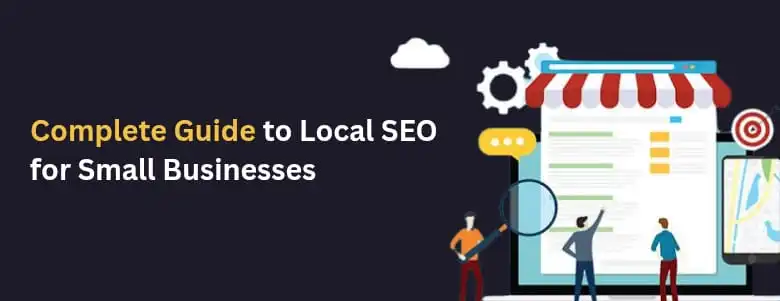Learn effective Facebook marketing strategies to drive engagement, boost sales, and grow your small business with ads, groups, and community pages.
What is Facebook Marketing?
Facebook marketing is how businesses promote their products or services on Facebook. With billions of active users, it’s a great platform for engaging with audiences, building brand awareness, and driving sales. Many small businesses use Facebook marketing to reach potential customers effectively.
Facebook Marketing for Small Businesses
Facebook marketing is an affordable way for small businesses to connect with customers, drive traffic, and boost revenue. However, some struggle with engagement and sales due to poor strategies. A solid Facebook marketing plan can help overcome these challenges.
1. Create a Separate Facebook Group and Community Page
A Facebook group or community page helps small businesses connect more deeply with their audience. These platforms encourage discussions, provide support, and build trust with potential customers.
2. Optimize Your Profile Page
Your profile page should look professional and informative. Include a high-quality logo, a clear business description, contact info, and a call-to-action button. A well-optimized page boosts credibility and customer engagement.
3. Post with Intent
Random posts won’t yield results. Each post should have a purpose—whether to educate, entertain, or persuade. Use engaging visuals and compelling copy to maximize interaction.
4. Use a Content Calendar
A content calendar helps keep your posts organized and consistent. Planning ahead ensures your content aligns with your goals and audience interests.
5. Establish a Community Page
A community page allows customers to engage with your brand. Unlike a business page, it encourages user-generated content, discussions, and recommendations.
6. Create a Facebook Group
Facebook groups help build a dedicated community. Businesses can position themselves as leaders by sharing exclusive content, answering questions, and connecting with members.
7. Be Strategic About Your Group Name
Choose a group name that reflects your business and audience. A thoughtful name helps users find your group and encourages participation.
8. Keep Adding to Your Facebook Story
Facebook Stories are a great way to engage your audience. Share behind-the-scenes content, promotions, and updates to stay top-of-mind.
9. Don’t Obsess Over Vanity Metrics
Likes and followers matter, but they don’t always lead to sales. Focus on engagement—like comments, shares, and messages—that show real customer interest.
10. Use Facebook for Customer Service
Facebook is perfect for customer service. Responding quickly to comments, messages, and reviews helps build trust and credibility.
11. Post with a Small Budget
Even a small ad budget can increase reach and engagement. Facebook’s tools let you target specific audiences for better ad performance.
12. Narrow Your Audience
Defining your audience helps ensure your ads reach the right people. Facebook’s targeting features allow you to focus on demographics, interests, and behaviors.
13. Consider Boosted Posts
Boosted posts increase visibility and engagement. Allocating a budget to boost successful posts can extend your reach.
14. Use Boosted Posts to Optimize Ads
Boosted posts can also lead to more advanced marketing strategies. Analyzing their performance helps refine your ad campaigns.
15. Learn How to Use Facebook’s Ads Tool
Facebook’s Ads tool offers advanced management features. Small businesses can use it to create, monitor, and optimize ad campaigns effectively.
16. Use Facebook’s Product Catalog Ads
Product catalog ads display multiple products in one ad. This feature is great for eCommerce businesses wanting to showcase their offerings.
17. Structure Your Pixel Strategically
Facebook Pixel tracks user behavior and measures ad performance. Setting it up correctly ensures accurate data collection and better campaign optimization.
FAQ
A) How Many Small Businesses Use Facebook for Marketing?
Over 200 million small businesses use Facebook for marketing, highlighting the need for an effective strategy.
B) How Do You Use Facebook to Market Your Business?
To market your business on Facebook:
- Create a professional page.
- Post engaging content.
- Use marketing tools like ads and groups.
- Engage with your audience.
- Track performance with Facebook Insights.
C) How to Use Facebook Ads for Affiliate Marketing?
Affiliate marketers can use Facebook ads effectively by:
- Choosing the right audience.
- Creating engaging ads.
- Using retargeting to reach interested users.
- Monitoring and optimizing ad performance.
Conclusion
Facebook marketing is a powerful tool for small businesses to drive engagement and sales. By using a strategic marketing strategy, businesses can reach a wider audience, build customer relationships, and increase revenue. Utilizing Facebook marketing tools ensures better performance and long-term success.
Author
-

Shweta Tiwari brings her expertise in marketing and a passion for clear, engaging communication to the world of digital content. With 5 years of experience, she excels at breaking down complex marketing strategies into easy-to-understand insights. Specializing in digital marketing trends and strategy development, Shweta helps businesses grow and adapt in today’s fast-paced digital landscape





